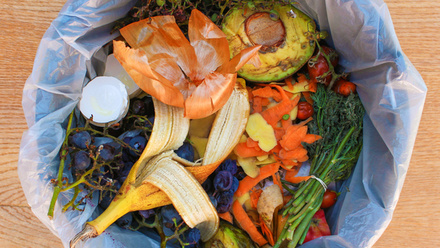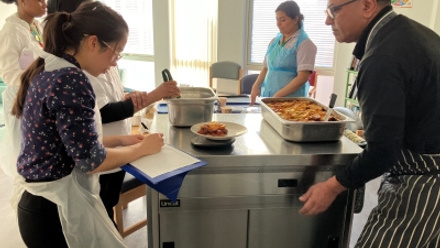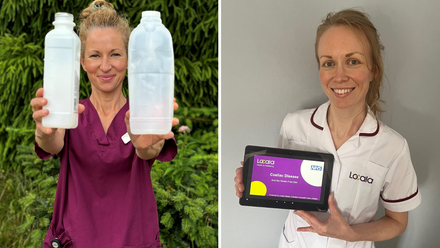Climate change is the biggest global health threat of the 21st century. The BDA Sustainable Diets Group is holding an event to show what we can all do.
On 12 September the @BDA_Sustainable Specialist Group will run a day-long event looking at how we can embed sustainability into dietetics & nutrition. #BDASustainableSeptember
— British Dietetic Association (BDA) (@BDA_Dietitians) August 16, 2023
Check out the action-packed agenda: https://t.co/jgOv3H3vKK 🌍 🌱
The world is facing a number of inter-related crises: health, climate and ecological. Human society is degrading the earth’s natural resources at a terrifying rate. Despite the central importance of biodiversity in sustaining life on earth, it is declining faster than ever before. Alongside this ecological breakdown, we also face climate breakdown. Both are closely connected and pose equally serious threats.
In 2015, the UN Paris Agreement recommended that through limiting the rise of global temperatures to 1.5C, the impacts of climate change could be reduced. At the current rate we will reach 1.5C warming above pre-industrial average temperatures in the early 2030s when 14% of the world’s population will suffer severe heatwaves at least once every five years. At 2C warming, this will increase to 37% of the population and the risk of extreme weather events, crop failure, poverty, displacement and death for hundreds of millions of people will increase significantly. The UCL-Lancet Commission on managing the health effects of climate change stated that “Climate change is the biggest global health threat of the 21st century”.
The programme is now finalised for the @BDA_Sustainable Study Day on 12th September! Open to Nutritionists , Dietitians, and anyone interested in Sustainability.
— South East BDA (@SouthEastBDA) August 20, 2023
Register here: https://t.co/fseqt7iBmL pic.twitter.com/qqf4hGUJAj
In 2019, the governments within the United Kingdom officially declared climate change a Climate Emergency.Through the Climate Change Act 2008, the NHS became the first health system to embed a net zero agenda into legislation which will be put into force from July 2023 with a Net Zero aim to be met; NHS England by 2040 and procurement by 2045, NHS Wales by 203010 and NHS Scotland by 2040.
‘Delivering a Net Zero NHS’ developed the ambitions to move to a greener NHS identifying key areas of carbon emission waste: estates and facilities, travel and transport, supply chains, food, catering and nutrition, and medicines.
As well as the NHS and their suppliers, sustainability has very recently and rapidly become a priority for many organisations.
The resounding message from various sources in relation to food is clear: with the food and agriculture industry responsible for between 25-30% of global greenhouse gas emissions, immediate action is necessary to curb emissions from food to help reduce the temperature rises.
Start the week right! Here are some helpful tips to amp up your breakfast to make it better for you and for the planet. How do you make your breakfast more sustainable- let us know! #onebluedot #dietitian #breakfast #nutrition pic.twitter.com/zYRNKPVoRq
— BDA Sustainable Diets Specialist Group (@BDA_Sustainable) October 3, 2022
Implementing sustainable principles and practice into dietetics and nutrition has never been so apparent.
The BDA Sustainable Diets Group firmly believes that all dietitians must play a role and can be hugely influential in achieving sustainability targets. Our focus now lies in supporting all dietitians across the membership to embed sustainability into all areas of practice, appropriately. We aim to do this through education, networking, and collaboration within the profession. We aim to upskill and instil confidence in dietitians, cementing their position as key professionals who can support this ambitious task. Sustainability has been incorporated into preregistration training. It’s time to support all post-registration dietitians at speed.
Education
Numerous resources exist to support the profession in upskilling on sustainability and incorporating it into their everyday practice including the One Blue Dot resources, the Sustainable Diets Food Fact Sheet, Eat Lancet, the Green AHP, MyNutriWeb and WWF. A sustainable diet does not have to differ greatly from a healthy diet; therefore, just as dietitians are instrumental in educating individuals about healthy eating, they are also best placed to educate people about the impact of their choices on the health of the planet. While some dietitians may hesitate to include sustainability due to concerns about potential nutritional deficiencies, the One Blue Dot report addresses these concerns in detail and supports clinicians in exploring sustainable options with their patients.
Embedding Sustainability into Dietetic and Nutrition Practice at Speed
Network and gain 7+ hrs of CPD this September
We invite all BDA members as well as non-members to the inaugural sustainable diets event in Birmingham on the 12 September, during the BDA’s Sustainable September. We have kept the fee as low as possible to allow as many members as possible to attend. We encourage everyone to attend in person but you can also attend online. Register now to be part of this transformative gathering and discover how you can play a vital role in integrating sustainability into your daily practice. Together, we can create a healthier world for all but we have no time to waste. We particularly call upon all heads of departments and Chairs of groups to allow at least one member to join this study day. We hope to see you there.







